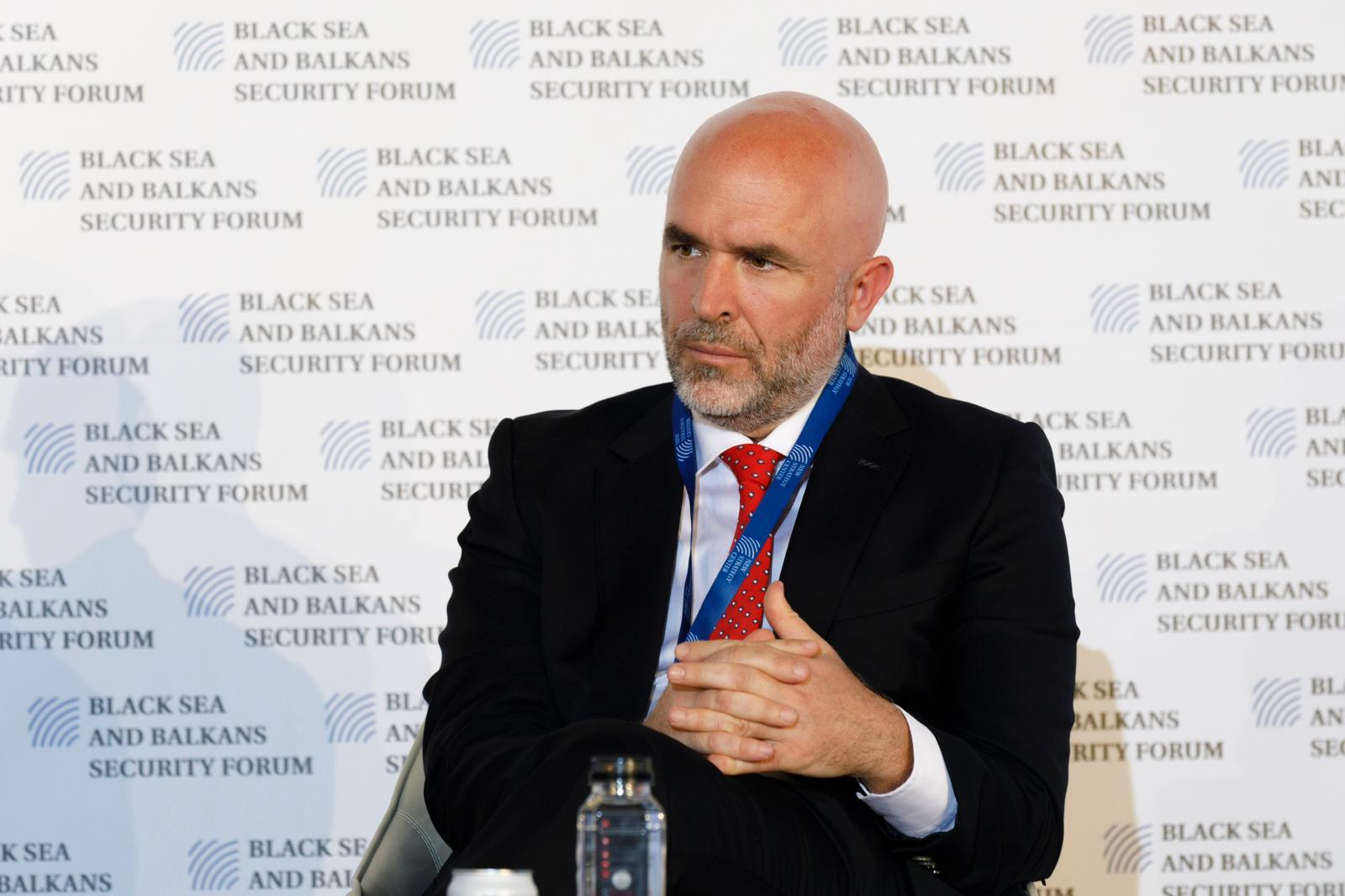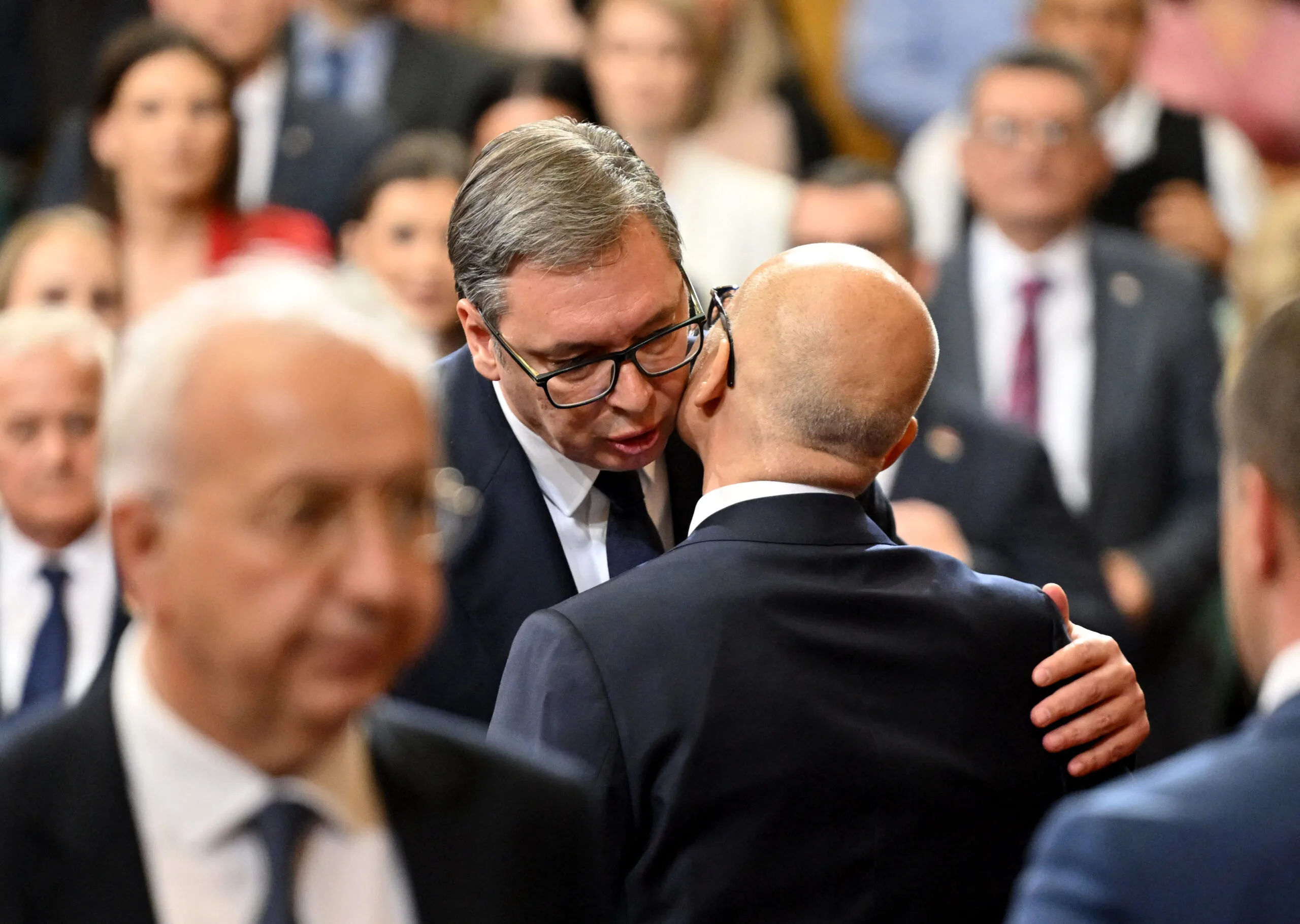Brussels – Like dominoes, in Serbia the fatal collapse of a bus shelter at the Novi Sad train station triggered the largest protest movement since the fall of Slobodan Milošević‘s regime. Twenty-five years later, another regime is in danger of crumbling in the face of the demonstrations that have been going on for three months now, the “violent and brutal” one of the Serbian Progressive Party (SNS) and its leader, President Aleksandar Vučić. “One way or another, this is the end of Vučić’s regime,” predicted in an interview with Eunews Srđan Cvijić, political analyst and chairman of the International Advisory Committee of the Belgrade Centre for Security Policy.
A few days ago, in an attempt to quell the student protests, Prime Minister Miloš Vučević, at the centre of the storm because he was mayor of Novi Sad at the time of the railway station renovation, resigned. “A non-event,” according to Cvijić, because Vučević was nothing but a puppet of the president, who in his twelve years in power “progressively concentrated all the power on himself.” That is why, Cvijić explains from Belgrade, “he had no effect on the demonstrations“: the students did not stop, and they will not stop.

The death of 15 people—plus two seriously injured—in the Nov. 15 incident in Novi Sad has uncovered a can of worms about rampant corruption in the Balkan country, bringing thousands into the streets to the cry of “Corruption kills.” Universities are the vanguard of the mobilization: students have set up plenums in the faculties, bodies “bottom-up” charged with decision-making and coordinated with each other at the national level. With no political colours and no recognizable leaders. “Students are extremely cautious to have nothing to do with politics; there is no contact even with the opposition,” recounts Cvijić again, who was able to participate firsthand as a member of civil society in some of these plenums.
In the squares of Belgrade and major Serbian cities, unlike in Georgia, one does not even see EU flags. Yet both are EU candidate countries and—in Belgrade as in Tbilisi—the markedly pro-Russian positions of their governments also come into play in the mobilizations. But “here the EU is perceived as an ally of Vučić,” admits Cvijić, who also served as a senior policy analyst for EU external relations. “Because of a whole range of economic relations. Understandably, the EU doesn’t want to isolate Serbia. Still, it has created this perception,” he further explains, clarifying that “it doesn’t mean that population is anti-European, but that they are disappointed with the EU.”
At the national level, on the other hand, according to the Serbian political scientist, the avoidance of political labels is not only a “pragmatic decision” to avoid exposure to the “incredibly vicious mud machine” of the government apparatus but the fruit of years of “Vučić’s anti-politics”, which has made the population “perceive any political actor with suspicion.” It is precisely the lack of connection to politics that is the key to the overwhelming success of the protests: “The students have channelled the revolt of an entire population,” the “frustration of twelve years of this violent and brutal regime,” and “the level of solidarity is incredible,” Cvijić confirms.
Indeed, after an initial phase of forcible arrests during the November marches, lately—as during the roadblock put in place last January 27 by students and farmers on two major arteries to the centre of Belgrade—the police themselves did not want to intervene against the protesters. Vučić’s nationalist party is taking revenge by itself: those responsible for the violence committed on protesters—some 20 people have been allegedly attacked in recent months—have often proved to be affiliated with the SNS, as in the case of the ambush, also on January 27, suffered in Novi Sad by a group of students, guilty of daubing anti-government graffiti and stickers on an office of the Serbian Progressive Party, and in which a woman was seriously injured.

Serbian President Aleksandar Vučić and, from behind, former Prime Minister Miloš Vučević (credits: Oliver Bunic / Afp)
“Even when the involvement is not direct, the violence is the result of the instigation and propaganda” of the regime, accuses Cvijić. A regime “that looks more like a mafia organisation rather than a government.” At this point, Vučić seems to have slipped into a narrow well, and any attempt to wiggle and climb back up the slope only drives him further down. Like the outspoken accusations against interference in the protests by “foreign agents from several Western countries”, which threaten to permanently alienate him from the already meagre support he enjoys in the rest of Europe. Such as the openness to a government reshuffle and the resignation of the premier: “Now the regime is in trouble because if it simply appoints another prime minister like Vučević it will infuriate people,” Cvijić explains, “but elections are not an option because the opposition parties have already declared that they would not participate.
The only option, the analyst indicates, is to “appoint a transitional technical government with two purposes: to free the government-controlled media and to create conditions for free elections.” At that point, it will be crucial to find out whether the student movement will unravel or support one of the candidates. For now, this question does not arise because, more than politics, “a real moral and emotional revolution” is taking place in Serbia. And this, “one way or another, is the end of the Vučić regime.”
English version by the Translation Service of Withub








